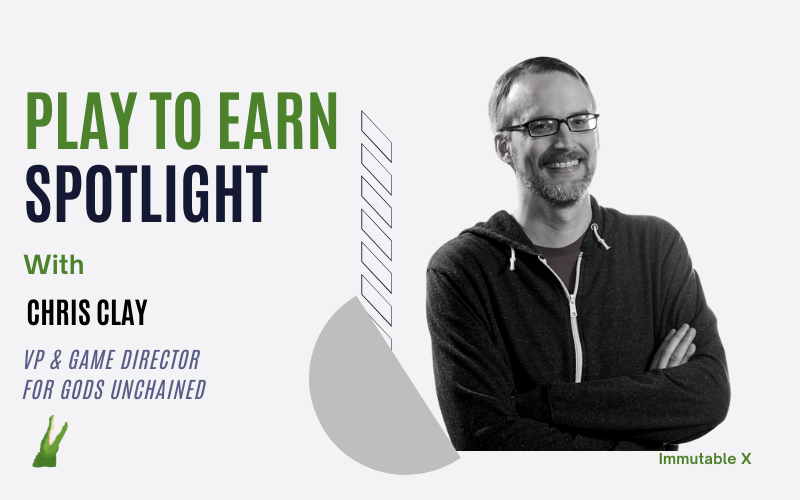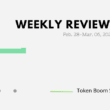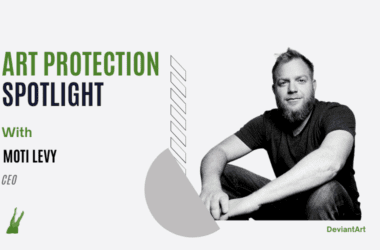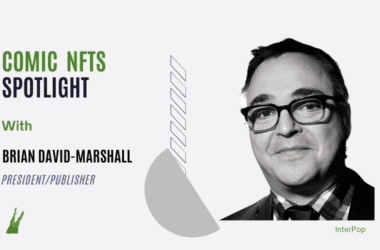Last Updated on March 19, 2022
For many blockchain-based projects, transaction time and high gas fees on Layer-1 blockchains have always been an issue. While Layer-1 blockchains can validate and finalise transactions without another network, improving its scalability is difficult. For instance, Bitcoin processes a mere seven transactions every second.
Due to the lengthy transaction time and high gas fees on Layer-1 blockchains, blockchain games that need to mint in-game assets for millions of players cannot possibly use Layer-1 networks. As a solution, developers have been creating Layer-2 protocols to allow users to freely make transactions.
One such example is Immutable X, a Layer-2 solution for NFTs on Ethereum. Immutable X provides zero gas fees, instant trades, and carbon-neutral NFTs for marketplaces, games, and applications.
As a proof of concept, the NFT scaling platform has built Gods Unchained, a trading card game powered by Immutable X’s Layer-2 network. We speak to Chris Clay, VP & Game Director for Gods Unchained to find out how Immutable X has scaled the game and what’s in store for Immutable’s partnership with Gamestop.
Please tell us about yourself and the story behind your role at Immutable X.
Hello! I’m Chris Clay VP & Game Director for Gods Unchained since 2019. I’ve been making online games since 2000, and playing them since 1980. Prior to joining Immutable, I was the Game Director for Magic: The Gathering Arena at Wizards of the Coast.
When I joined Immutable I was motivated by the opportunity to create a diverse culture from the ground up based on mutual respect and extending that respect to our players to change the balance of power between players and games studios. I was also excited for the chance to create a digital card game where players owned their cards. The comparison to traditional physical cardboard cards made so much sense to me at the time, and it started an amazing journey for me.
How and when did you get into blockchain gaming? Where did you hear about it in the first place?
CEO Robbie Ferguson reached out to me on Linkedin while I was at Wizards, and the elevator pitch in the message interested me enough to take the call. His passion for the space, along with my own research into what they were building and what I could bring to improving the game experience of Gods Unchained led to a call with James Ferguson, a trip to Sydney to meet the team, and as they say – the rest is history.
From the start, it was a great pairing as the existing team knew blockchain, and with over twenty years of creating live games, I had the game experience to complement. It’s been a great partnership.
How has Immutable X’s L2 scaled the blockchain games using the platform so far? Please give some examples.
Gas costs on L1 absolutely crippled the Gods Unchained ecosystem during the Trial of the Gods sale. Essentially gas prices were so high that it didn’t make sense to trade most cards, so there wasn’t anything happening in the marketplace. Due to the high gas prices, we had to change the minimum packs bought per transaction to over 50 rare packs just to break even with the minting costs as minting was cheaper in bulk but still insanely expensive.
With L2, we can allow purchases of a single pack with no concerns and players can trade the most common cards in the game freely at values below $1. Both of these would still be untenable with current L1 gas costs. We’ve gone from almost no marketplace activity to over 5m trades and $50m in volume since the launch of GU on Immutable X. An active and liquid marketplace is the lifeblood of a blockchain game.
It also means we’ve been able to mint cards without worrying about gas. This changed Weekend Ranked prizing from an event where we had to carefully monitor minting costs, to an event we can mint each week without worry. Previously we’d sometimes delay minting cards for weeks at a time, because gas costs made giving out the cards to just thousands of players cost hundreds of thousands of dollars at peak. Ensuring players get their prizes quickly is something we’re continuing work on to improve, as these are a key element in helping players grow their collections through play.
At this point, L2 has let us scale to around 19 million NFTs in 128k wallets, and sets us up to be able to scale to hundreds of millions of NFTs with millions of players, a scale that L1 could never handle. L2 opens up blockchain gaming to be an accessible, sustainable, and affordable way for players to have true ownership of their in-game assets.
Why did Immutable X decide to partner with GameStop for its NFT marketplace? What potential do you see in it?
Since Immutable started by launching the first multiplayer game on the blockchain back in 2017, we’ve been obsessed with redefining the gaming industry by supporting genuine power to players. GameStop, in partnership with Immutable, has the potential to cement itself as the ultimate destination for the next paradigm of gaming; true in-game economies that enable permissionless ownership of in-game items and value players for their time.
The GameStop NFT marketplace, powered by Immutable X, will create significant opportunities for developers to create in-game, carbon-neutral economies in which gamers can buy, sell and trade in-game assets (e.g digital real estate, swords, skins). The potential that’s unlocked by having many different game assets on the same platform is incredibly exciting, as it will create a shared possibility space the likes of which I don’t believe we’ve ever seen in games.
What do you think about the current state of the blockchain games market?
Right now we’re still in the early adopters’ phase of the technology, where most of the products focus on the scarcity or fear of missing out aspects of things. It’s why you see so many projects with thousands of NFTs, or maybe on the higher end tens of thousands of NFTs. This works for now, but we believe it will create challenges in their ability to transition to mainstream gaming where millions and billions of NFTs will be needed.
Immutable and Gods Unchained have been built to enable mainstream adoption as the technology matures, with a focus for Gods Unchained on high volume NFTs with direct utility in-game and a mix of affordable NFTs with some rarer high-value NFTs. This is important because it makes our product far more accessible for those looking to dip a toe into the space, particularly because Gods Unchained is free to play and balanced so free to play players can compete.
How important is carbon neutrality for the NFT and blockchain gaming space?
Carbon neutrality is directly in line with our mission to make the world a better place. At its most basic it just makes business sense to reduce costs, and creating a platform that has drastically lower energy usage also has drastically lower costs. By giving players ownership of the assets they’ve purchased and earned through play we believe we are changing the balance of power in gaming towards players and by creating our millions of NFTs on Immutable X we’ve made a significant reduction in emissions over minting them on L1 ETH, around 99.5% less energy used. Any carbon footprint on Immutable X is then offset with certified climate-conscious partners Trace and Cool Effect.
What are 3 things about Immutable X that someone who’s new to it should know?
1. Immutable X resolves transactions nearly instantly, allowing for an amazingly fast experience compared to L1 blockchains that requires no gas fees and is carbon neutral
2. There is no need to create an Immutable X account, because your wallet acts as your login. All actions need to be confirmed through your wallet, so there is no need for an Immutable X login.
3. As a gamer, you ultimately don’t need to care that Immutable X is a blockchain marketplace. The main point of this technology is in its ability to give you control over your collection, which doesn’t necessarily require a complete understanding of blockchain technology itself.
Where do you think we could see NFTs and blockchain games in the near future?
Right now we’re still in the phase of figuring out how to best set up the infrastructure and technology of blockchain games, not to mention the iteration and experimentation that’s happening with utility tokens for the games themselves. In my experience, it’s similar to the early days of Kickstarter in that right now many are moving into the space as NFTs and blockchain are seen as a quick way to raise capital with some key team members, a roadmap, presale, and whitepaper. Many of these projects are likely to fail when faced with the reality of delivering on their promises.
That said, I think we’re not that far off from more games joining the space that provide exceptional gaming experiences. As the technology matures we can focus our collective efforts more on the games rather than the challenge of the tech itself. In my opinion, amazing games that just happen to use the blockchain will be the gateway to wider adoption across the industry as players see the benefits the technology can bring to them, particularly in lifestyle games.
I don’t believe that all games should be blockchain games, but for games where you’re spending thousands of dollars and/or thousands of hours playing them, I believe giving back to the players and communities around those games is the way forward. At some point in the near future, I expect players of this style of game to demand control over their assets.
Any other blockchain game and NFT-related industry issue you would like to talk about?
One of the big challenges for us right now is just finding a diverse spectrum of people to join our team, no matter where they are on the globe. We are looking for those with the skills and culture fit to help elevate the company as a whole. On the plus side, I think this global demand is great for exerting pressure on studios to provide great work experiences and work/life balance as there are so many opportunities out there if they don’t.
I think there is also a real challenge for blockchain games and NFTs to break through the anti-NFT noise in mainstream media and gaming communities at the moment. Ultimately we believe that Gods Unchained and Immutable X proves how the technology can be used constructively, and that by continuing to have player-focused technologies and systems we will win over the skeptics and enthusiasts alike.
Stay up to date:





